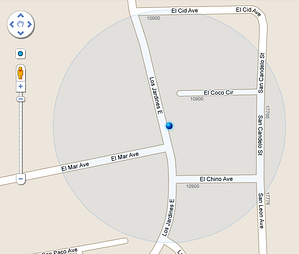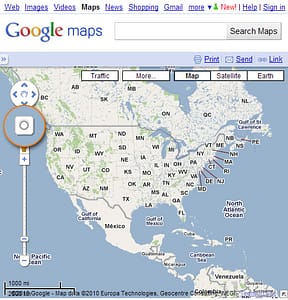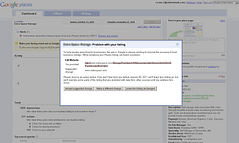Early this morning, we observed an interesting development in one of our clients’ Google listings.
Google Maps shows two different listings for the same business. In some cases they are almost completely different records, but in other cases the listings are nearly identical. The most common differences are found in the business’s address or phone number.
We’ve grouped these phenomena into two categories: alias duplicates and exact duplicates.
In the case of the alias duplicates, the authentic listing shows up exactly as it is supposed to—the contact information and content we provided appear as expected. However, another business listing can be found that contains identical contact information and content; the only noticeable difference is the business name.
To determine if the listing is an alias duplicate, copy the permalink to the listing (which can be found in the link box). Travel to this link instead of the link you’re already viewing. There will be a question mark (?) in front of the CID and then a number. This number is the unique content identifier used by Google. If they are the exact same number, you’ll be looking at the exact same record, but with two different faces. The results shown depend upon the user’s query. To establish which record is the primary record, remove every part of the URL after the CID number. Traveling to this link will bring you to the primary record, which is the most trustworthy listing. The other record is maintained by Google just in case someone is to directly search for that business by its content alone.
For example, if ABC Plumbing was the primary record and Powerhouse Plumbing was the alias duplicate, Powerhouse Plumbing would only be viewed if someone directly queried Powerhouse Plumbing, since all of the content in the record would yield results for ABC Plumbing. It’s for this reason that a primary record and its duplicate listing will never be seen in the same search results.
Unfortunately, there’s very little we can do about this anomaly, but comfort can be taken in the fact that the alias duplicate can only be found when a user searches for that business name directly—there’s no other way to find the duplicate listing. On top of this, any attempt to utilize the contact information will result in contact with the business in the primary record.
Exact duplicates are listings that closely match the business name and contact information, but have entirely different content. They also have different records, or CIDs. At first glance, it looks as though Google has failed to compress these accounts into a single listing. This could be due to the fact that the two records do not have overlapping categories, or much of any other comparable information for that matter.
In order to let Google know about these issues, take the following steps:
When you notice these records on an A-J Google Maps search, go to the bottom of the page. Click the link that reads “Report a problem,” note that the search results contain multiple listings for the same place, and then note that the two records are exact duplicates.





